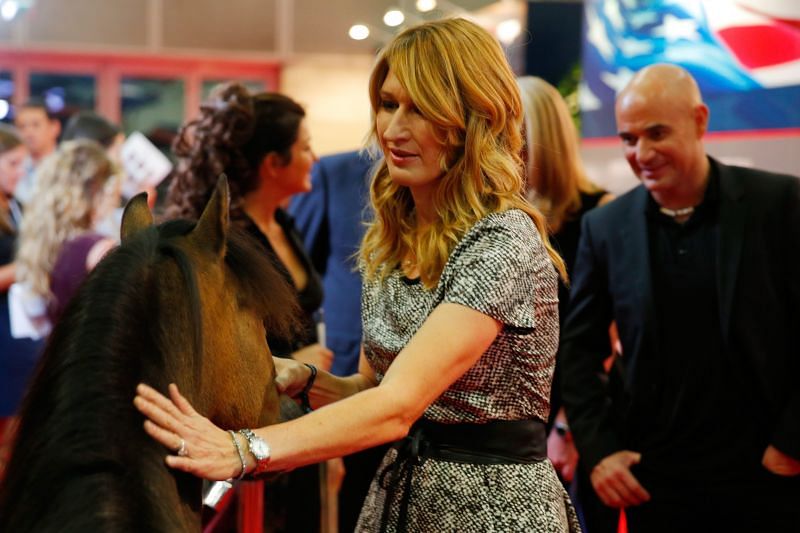
Novak Djokovic's Olympics loss shows why Steffi Graf's 'Calendar Golden Slam' is unlikely to ever be repeated
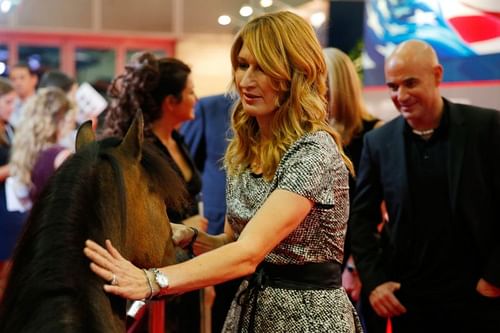
The tennis event at the Tokyo Olympics came to an end last weekend, with Alexander Zverev and Belinda Bencic winning the singles gold medals. Perhaps more significantly though, Novak Djokovic fell at the semifinal stage in singles, thus ending his bid for the 'Calendar Golden Slam'.
While the tennis event brought some incredible highs and lows for players and their fans, it also led some to question the relevance of the Olympics in a crowded tennis calendar. The past year has seen COVID-19 turn people's careers, goals and schedules upside-down, and the importance of an Olympic gold was sharply scrutinized as the withdrawal list for Tokyo grew abnormally large.
With the likes of Roger Federer, Rafael Nadal, Simona Halep, Dominic Thiem, Sofia Kenin and Bianca Andreescu pulling out, the tennis event at the Olympics had lost some of its sheen even before it started. But it still retained a lot of attention among fans and the media in light of Novak Djokovic's attempt to rewrite the record books.
The men's World No. 1 won his second Roland Garros title in June, after having triumphed at the Australian Open in January. That's when the chatter around a possible 'Calendar Grand Slam' (winning the Australian Open, French Open, Wimbledon and US Open in the same season) and a 'Calendar Golden Slam' (winning all the four Majors + Olympics gold medal in the same year) started gaining momentum.
The conversation was further fuelled by Djokovic's record-tying 20th Grand Slam triumph at Wimbledon last month.
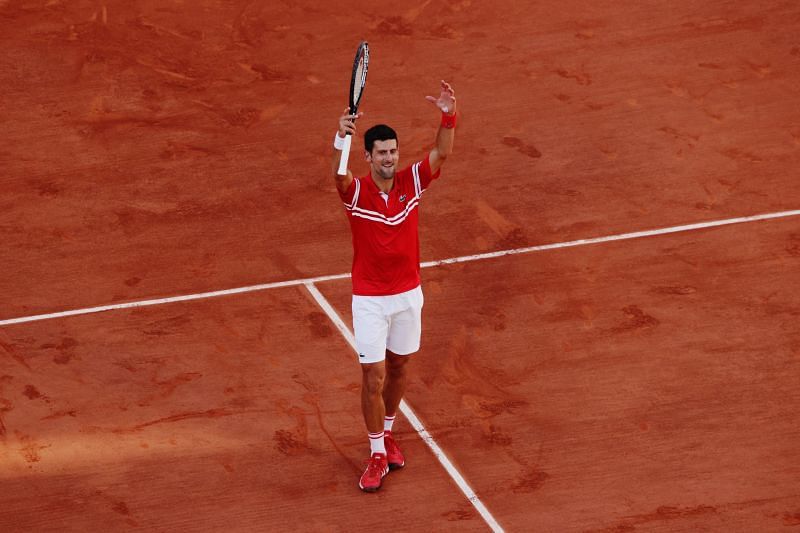
Novak Djokovic has made no secret of his desire to break the most significant records in tennis. On more than one occasion, the 34-year-old has openly declared that he wants to end his career with the most Majors (currently Djokovic, Nadal and Federer are all tied at 20) and most weeks as World No. 1 (a record that the Serb already owns).
So it came as no surprise that after claiming the first three Majors of 2021, Djokovic decided to pursue two more records to further bulk up his already GOAT-worthy career. Only two players - Rod Laver in 1969 and Steffi Graf in 1988 - have won the 'Calendar Grand Slam' in the Open Era. And Graf is the only player ever to have gone one step ahead and completed the 'Calendar Golden Slam'; the German won the Olympic singles gold to add to her four Major wins in 1988.
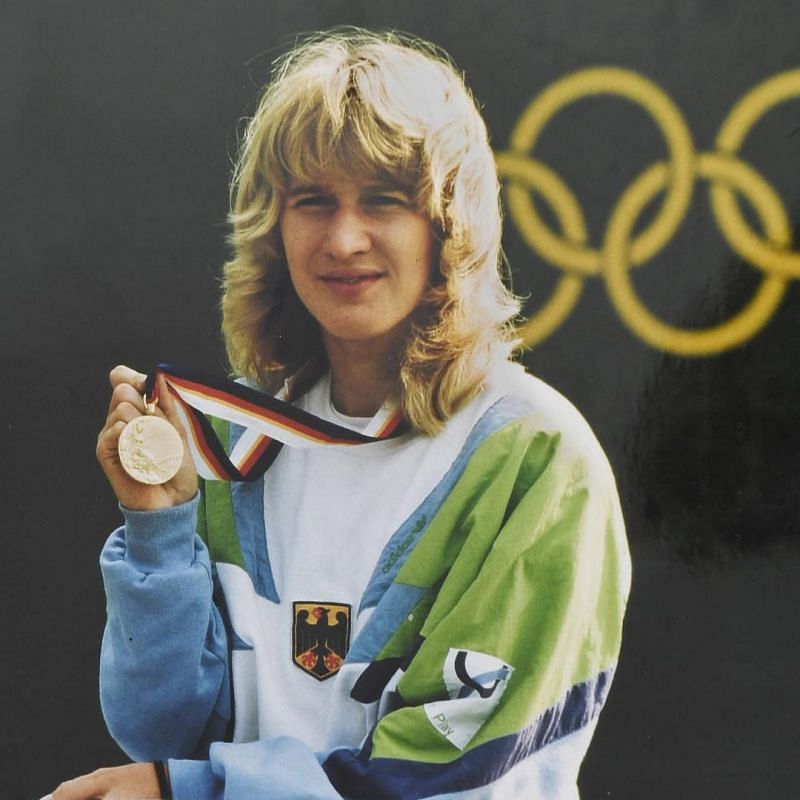
Novak Djokovic's shot at one of those two records ended with his semifinal loss to Alexander Zverev in Tokyo. So perhaps now is a good time to look back at Steffi Graf's feat, and try to understand just why it is so difficult to emulate.
Steffi Graf's incredible 1988 season brought the 'Calendar Golden Slam' term into tennis lexicon
Stefi Graf's achievements and legendary career have been well-documented. While she may have surrendered the record for most women's Majors in the Open Era to Serena Williams, Graf is the only player, male or female, to win each of the Slams four times each.
Moreover, the German's 377-week reign at the top of the rankings is still the benchmark for most weeks as World No. 1 in tennis. At 332 weeks, Novak Djokovic is closer to breaking that record than Serena Williams (319 weeks) is.
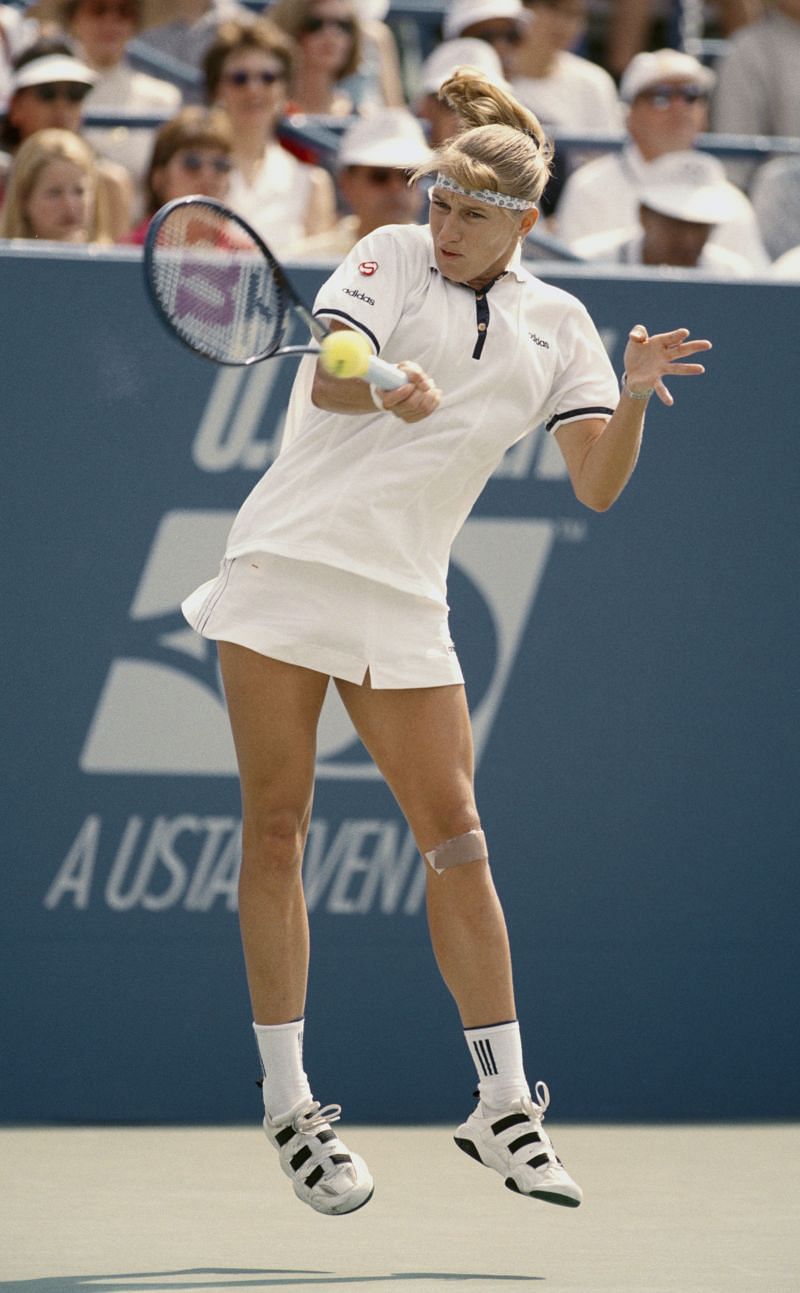
The pinnacle of Steffi Graf's career undoubtedly came in 1988. At the start of that year Graf was already ranked No. 1 in the world, but she had only one Grand Slam title (the 1987 French Open) in her resume.
'Fraulein Forehand', as Graf was known, began the season by winning her first Australian Open title, where she beat Chris Evert 6-1, 7-6 in the final. She then added a second French Open title in Paris with a 6-0, 6-0 whitewash of Natasha Zvereva in 32 minutes - the shortest Grand Slam final on record.
Graf ended Navratilova's reign at Wimbledon with a 5-7, 6-2, 6-1 win to complete three-fourths of the 'Calendar Grand Slam'. In New York, the German defeated another close rival and doubles partner, Gabriela Sabatni (6-3, 3-6, 6-1), to forever etch her name in the record books.
By the time Graf got to Seoul for the Olympics, everyone realized that she had a chance to do what no player in the history of the sport had ever accomplished - couple her Grand Slam sweep with an Olympic singles gold. And that's exactly what the German did, beating Sabatini 6-3, 6-3 to further add to her legend and formally introduce the term 'Golden Slam' into the tennis lexicon.
Serena Williams, Novak Djokovic among the recent players to have raised hopes of winning a Calendar Grand Slam
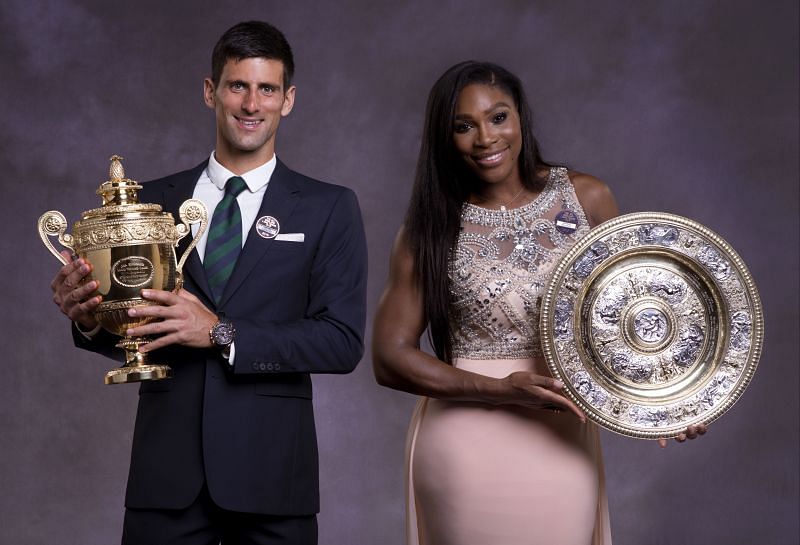
Every time a player wins the Australian and French Open titles in the same year, the possibility of a 'Calendar Grand Slam' becomes a talking point in tennis circles. After Rod Laver and Margaret Court kicked off the Open Era by sweeping the Majors in 1969 and 1970 respectively, a few players have raised hopes of joining them in the record books.
Court herself won the Australian and French Open in 1973 as a mother, but lost in the semifinals at Wimbledon to Chris Evert. Nearly two decades later, Monica Seles raised hopes by winning the Australian and French Opens in both 1991 and 1992. But Seles was unable to ever win the Wimbledon title; she pulled out due to injury in 1991 and finished runner-up to Graf in 1992.
Close to a decade from there, Jennifer Capriati captured the Australian-French double (2001) before being beaten by Justine Henin in the Wimbledon semis.
Serena Williams has been the closest women's player to joining the 'Calendar Grand Slam' club; the American added the Wimbledon title to her Australian-French Open titles in 2015. That marked the second time Williams won the 'Serena Slam" (holding all four Majors at the same time).
Williams headed to the US Open as the odds-on favorite amid intense media attention over what she was on the verge of accomplishing. However, she found her dream sliced by the Italian underdog Roberta Vinci in the semifinals.
On the men's side, while Graf was on her way to the Golden Slam in 1988, Mats Wilander was simultaneously raising hopes of a 'Calendar Slam' by capturing the Australian and French Open titles. However, the Swede was knocked out in the quarterfinals at Wimbledon.
Four years later, Jim Courier raised similar hopes by winning the Slams in Melbourne and Paris. The American couldn't go further though, as he was knocked out of Wimbledon in the third round.
After that it wasn't until 2016 that another male player raised hopes of a possible 'Calendar Grand Slam' again. That was the year Novak Djokovic won the Australian and French Open titles.
The Serb had already won Wimbledon and the US Open in 2015 to complete the 'Nole Slam' and thus become the first male player since Rod Laver in 1969 to hold all four Majors simultaneously. But as incredible and difficult as the Nole Slam may have been, Djokovic still needed to win the next two Majors to make it count as a 'Calendar Grand Slam' in the record books.
It wasn't to be, as the Serb was defeated in the third round at Wimbledon that year.
Novak Djokovic went a step further in 2021 by claiming the first three Majors of the season for the first time in his career. And when he arrived in Tokyo with his major rivals on the sidelines, it seemed like the stars were aligning themselves for the Serb to join Graf in the 'Golden Slam' club.
But the weight and pressure of those expectations proved too much in the end. Djokovic hit a wall during his semifinal match in Tokyo and went down in three sets to Alexander Zverev. The German ensured that his compatriot's record would remain unmatched until 2024 at the very least.
Why is the Calendar Golden Slam tougher now than it was in 1988?
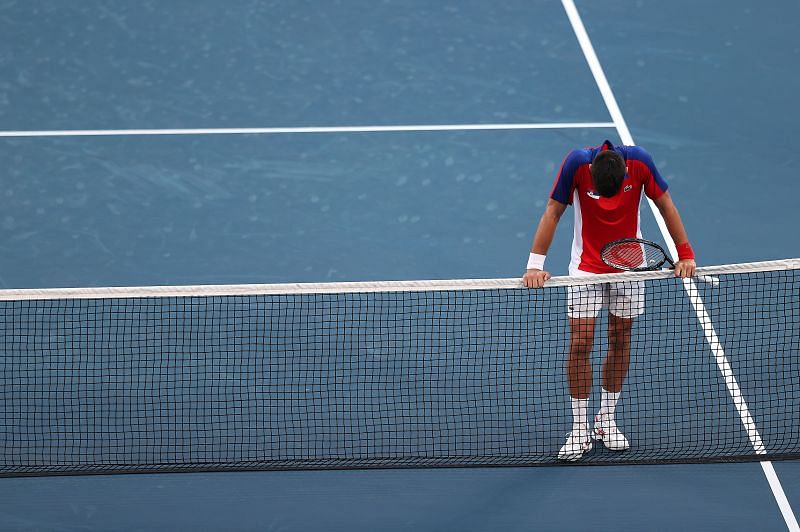
With the likes of even the Big 3 and Serena Williams failing to win the 'Calendar Grand Slam', it is looking increasingly improbable that any player will be able to win all four Majors in a year again. And the Calendar Golden Slam - which can theoretically be accomplished only once every four years - is even unlikelier.
Sure, the relative standardization of the surfaces in the modern era has made the feat easier in at least one aspect (compared to 1988). When Graf completed her sweep, the grass at Wimbledon was very different from what it is today. Even the hardcourts used across different countries have slowed down over the years, making the sport homogenous and thus more attractive to fans and TV viewers.
But the surface standardization is more than outweighed by the myriad counter factors that have changed since Graf's Golden Slam. For one thing, the media is a lot more pervasive now compared to the late 1980s. Add the whole aspect of social media to the equation, and the pressure and expectations on athletes increase manifold - to the extent of impacting their mental health.
When Serena Williams arrived at the 2015 US Open bidding to complete the elusive Calendar Slam, the media attention around the prospective feat was immense. There was a lot of pressure on Williams' shoulders right from the get-go; at every press conference she attended, the 'Calender Slam' question was the first that was asked of her.
The pressure eventually reached boiling point, as we saw during Williams' shock loss to Roberta Vinci in the semifinals. While the American looked like the better player for the first set and a half, her nervousness became palpable as the finish line appeared in sight. And Vinci took full advantage of that.
Another aspect to consider is the scheduling of the Olympics. Steffi Graf had already accomplished the 'Grand Slam' sweep before heading to Seoul, as the 1988 Games were held in October. But now the Olympics are held before the US Open, so there is added strain on the players' bodies and minds.
Novak Djokovic was understandably exhausted earlier this year after completing the French Open-Wimbledon double in the space of six weeks. He had to make the choice whether to travel to Tokyo for the Games or rest for a while and go to the US Open fully recharged.
Djokovic ultimately chose the Olympics, but couldn't win the elusive gold medal. He also picked up a few injuries in Tokyo which might even affect his US Open preparations. In a way, it ended up being a lose-lose situation for the Serb.
The same scenario will play out at the next three Olympics, with Paris 2024, Los Angeles 2028 and Brisbane 2032 all being scheduled in the short window between Wimbledon and the US Open. The normal tennis calendar is already demanding on the players, and the addition of the Olympic games in the middle just makes everything more complicated.
If the schedule and the pressure were too much for even a GOAT player like Novak Djokovic, it's unreasonable to expect any other player to get it done. All things considered, the chances of Steffi Graf losing exclusive rights to the 'Calendar Golden Slam' record anytime soon seem highly unlikely.